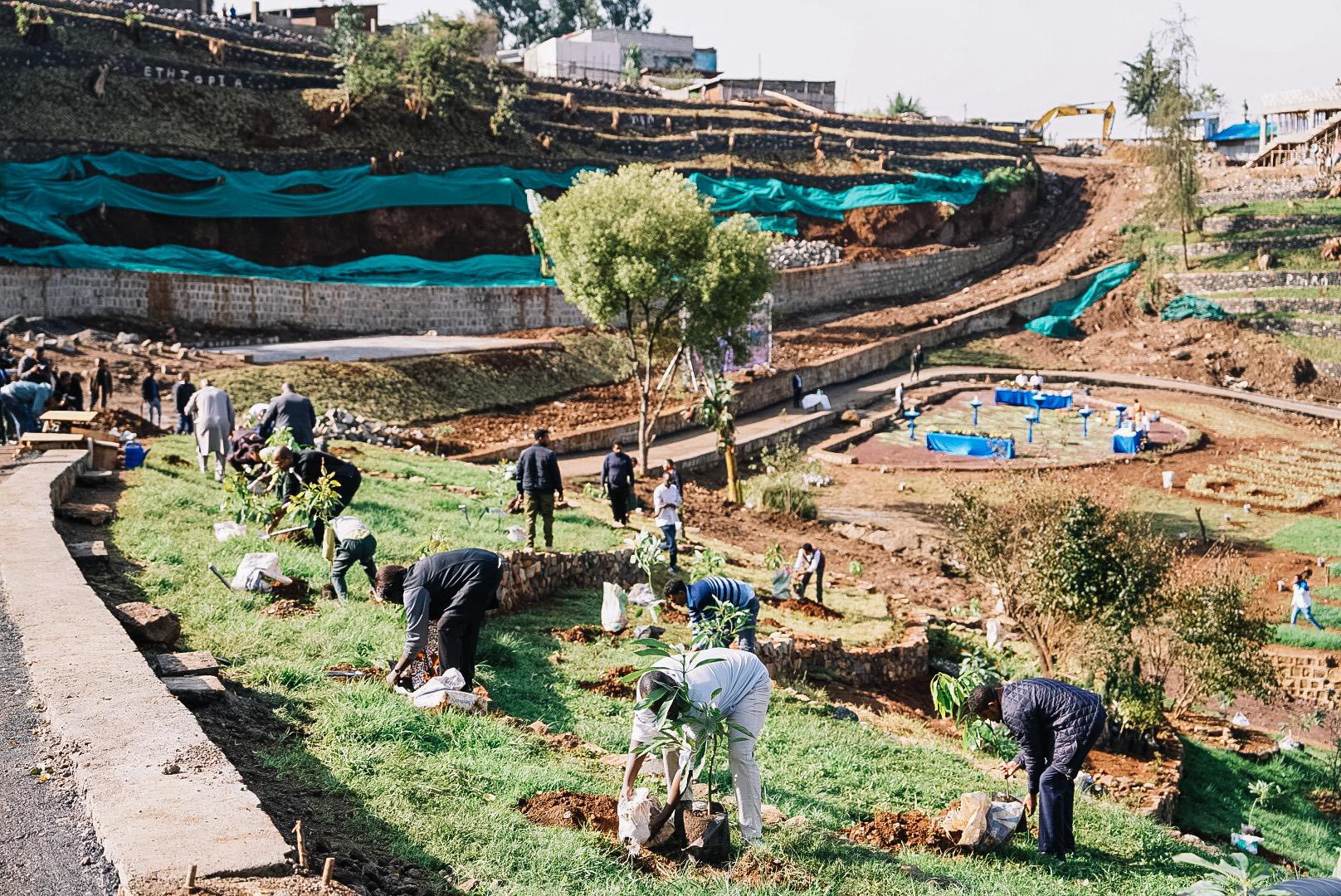Green Legacy drives Ethiopia’s push for environmental recovery and food sovereignty
Addis Ababa, June 30, 2025 (FMC) – Ethiopia’s flagship Green Legacy Initiative is gaining momentum as a unifying national movement, with regional chief administrators affirming its pivotal role in reversing environmental degradation, enhancing fruit productivity, and advancing the country’s food sovereignty agenda.

Launched this year under the theme “Renewing Through Planting”, the Green Legacy Initiative aims to plant 7.5 billion seedlings during the current rainy season, raising the national total to 47.5 billion since its inception in 2019.
The 2025 launch event, held at the Gulele Riverside Project in Addis Ababa, was attended on June 28 by Prime Minister Abiy Ahmed, Nigerian Vice President Kashim Shettima, Speaker of the House of Peoples’ Representatives Tagesse Chafo, regional chief administrators, senior federal officials, and members of the diplomatic corps.
Chief Administrators of regional states who participated in the tree-planting event praised the initiative not only for restoring degraded landscapes but also for creating new economic opportunities through agriculture and fruit cultivation.
Oromia Region Chief Administrator Mr. Shimelis Abdisa said that millions of residents in his region participate in the Green Legacy program each year. He emphasized that previously degraded areas have been rehabilitated, enabling vegetable and fruit production for both local consumption and export.
Lieutenant General Tadesse Werede, Head of the Interim Administration of Tigray Region, noted that the program’s ability to bring people together has been transformative. He announced that Tigray’s regional Green Legacy campaign will officially launch on July 20, 2017 EC (July 28, 2025 GC).
From the Benishangul-Gumuz Region, Chief Administrator Mr. Ashadli Hassan highlighted that fruit cultivation has flourished under the initiative. He underscored its growing contribution to Ethiopia’s export portfolio—joining coffee as a nationally significant product—and emphasized the importance of the program for the region hosting the Grand Ethiopian Renaissance Dam (GERD).
Somali Region Chief Administrator Mustefe Mohammed explained that the initiative has enabled drought-prone areas to regenerate and become productive once again. “It has helped barren land recover its fertility,” he said, pointing out the long-term sustainability benefits for the region.
Afar Region Chief Administrator Awol Arba stated that tree planting has become a community tradition. Fruit trees planted under earlier rounds of the initiative are now bearing results, and the Afar community is poised to participate widely again this year.
In Gambella, fruit trees planted through the initiative are contributing to household income and local food sufficiency, according to Chief Administrator Ms. Alemitu Umod. She said the initiative is directly supporting the region’s efforts to build community resilience and food security.
Harari Region Chief Administrator Ordin Bedri echoed that the Green Legacy Initiative is integral to the national food sovereignty agenda. He credited the program’s success to the inclusive participation of communities from all backgrounds.
With preparations finalized across all regions, Ethiopia’s Green Legacy is not only greening the nation but also laying the groundwork for environmental restoration, economic productivity, and a self-reliant food system.

